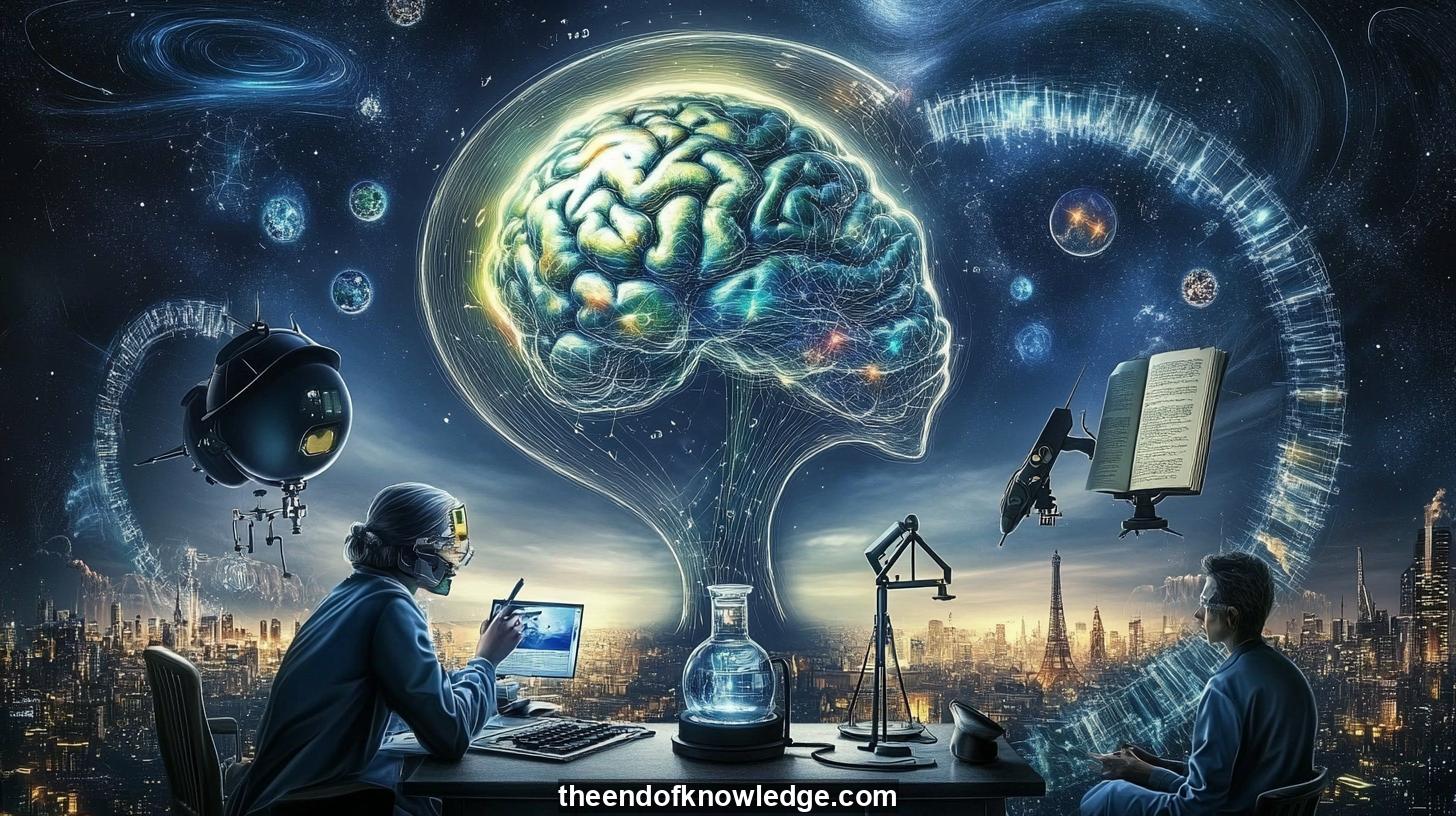 >
>
Concept Graph, Resume & KeyIdeas using DeepSeek R1 :
Resume:
discusses the emulation of the human brain in artificial intelligence (AI), exploring the intersection of neuroscience, mathematics, and technology. It highlights the brain's role as a model for AI, emphasizing the complexity of neural networks and the challenges in replicating them. The conversation delves into the ethical implications of advanced AI and the potential future where AI might surpass human intelligence. The brain's plasticity and its inspiration for adaptable AI systems are also explored. The discussion underscores the limitations of current AI systems and the need for continued research into brain functions to advance AI technology, stressing the importance of interdisciplinary collaboration for breakthroughs in brain emulation and AI development.30 Key Ideas:
1.- The brain's complexity and its role as a model for AI development are central themes.
2.- Neural networks in AI are inspired by the brain's structure and function.
3.- Mathematics and logic underpin both brain processes and AI algorithms.
4.- Ethical considerations arise when developing advanced AI systems.
5.- The potential for AI to surpass human intelligence is a significant topic.
6.- Brain plasticity offers insights into creating adaptable AI systems.
7.- Current AI systems have limitations that need addressing through research.
8.- Interdisciplinary collaboration is crucial for advancing brain emulation in AI.
9.- The brain's ability to process information efficiently is a key area of study.
10.- Understanding neural connections and synapses is vital for AI development.
11.- The integration of neuroscience and AI could lead to significant technological breakthroughs.
12.- Ethical debates surrounding AI focus on its impact on society and humanity.
13.- The future of AI may involve more generalized intelligence inspired by the brain.
14.- Research into brain functions is essential for advancing AI technology.
15.- The brain's adaptability provides a model for developing resilient AI systems.
16.- Collaboration between neuroscientists and AI engineers is necessary for progress.
17.- emphasizes the importance of understanding the brain's complexity.
18.- AI systems aim to replicate the brain's ability to learn and adapt.
19.- Ethical considerations must guide the development of advanced AI.
20.- The intersection of neuroscience and AI offers vast potential for innovation.
21.- Brain emulation in AI requires a deep understanding of neural mechanisms.
22.- The development of AI raises questions about consciousness and intelligence.
23.- The brain's plasticity is a key feature that AI systems aim to emulate.
24.- Research into brain functions can lead to more efficient AI algorithms.
25.- The ethical implications of AI development must be carefully considered.
26.- Collaboration between disciplines is essential for advancing brain-inspired AI.
27.- The brain's complexity presents significant challenges for AI emulation.
28.- Understanding neural networks is crucial for developing advanced AI systems.
29.- The potential for AI to surpass human intelligence is a topic of debate.
30.- The integration of neuroscience and AI could revolutionize technology and society.
Interviews by Plácido Doménech Espí & Guests - Knowledge Vault built byDavid Vivancos 2025